What does a vegan diet include? What does it offer to our body? How does it make us feel? Does it contribute positively to our health? Can such a diet meet our needs?
Most vegans claim to feel healthier, happier and more in tune with nature and its creatures, as a result of becoming vegan. Though there is obviously a strong link between veganism and moral values, in this section, we will focus on nutrition.
Research has shown that a vegan diet holds several benefits for animals, for our health and the environment. Although veganism was considered extreme and impractical a few years ago, today, as a result of the increased availability of free information and the help of scientific innovation, the number of vegans is rising worldwide.
People following a vegan diet, do not consume the meat of animals, or any of their by – products, in an effort to stand against animal exploitation and promote respect for the life of all beings, including nature itself. More specifically, apart from meat, poultry, fish and other aquatic animals, vegans do not consume dairy products, eggs, or honey. The source of all food must be plant-based.
Did you know that…
Producing 1 kg of animal protein requires about 100 times more water than producing 1 kg of grain protein

The benefits of being vegan
Veganism is not just a trend, or a movement. It is a life philosophy which is based on the premise that, during our short stay on this planet, we must cause the least amount of harm possible. Today more than ever, an increasing number of people are turning to veganism, with many celebrities adopting a vegan lifestyle and promoting the health benefits with which it is associated.
It helps maintain a healthy body mass index
Veganism isn’t a weight – loss diet, but it has been proven to help maintain a healthy body weight. Fruits, grains and vegetables have a much less fat than meat and dairy products, which are higher in calories than carbohydrates. Naturally, a diet based on fruits, vegetables and grains is much lighter and beneficial to our body.
It reduces the risk of serious health problems
Maintaining a vegan diet has been proven to be effective against hypertension, type 2 diabetes and cardiovascular diseases. Its low content in saturated fats and trans fats positively contributes to our health, resulting in vegans being less likely to suffer from obesity, while they also tend to have lower blood pressure and cholesterol. In addition, the antioxidants in fruits and vegetables reduce the risk of developing chronic diseases including cancer.
(source: Proceedings of the National Academy of Science)

Quick vegan snacks
Meet your needs for protein, iron and vitamins B12 and D intake. These suggestions will help you identify the basic "ingredients" needed to prepare a quick vegan meal that will cover your daily requirements for important nutrients.
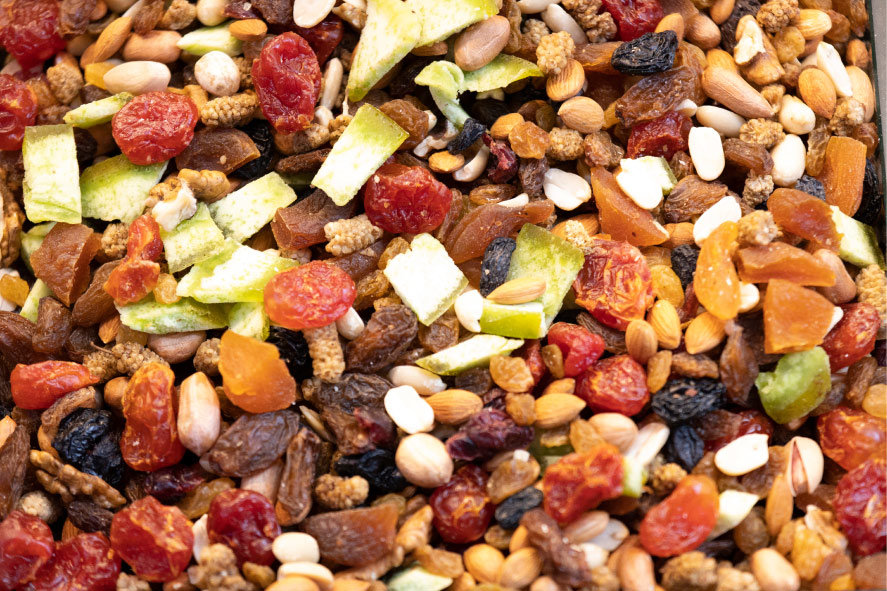
Mix of nuts and raisins
An easy snack that you can always carry with you in a small container. If you combine them with soy milk, they can make an excellent breakfast choice. Most importantly, they are rich in calcium, vitamins C and D, fiber and polyunsaturated fats.
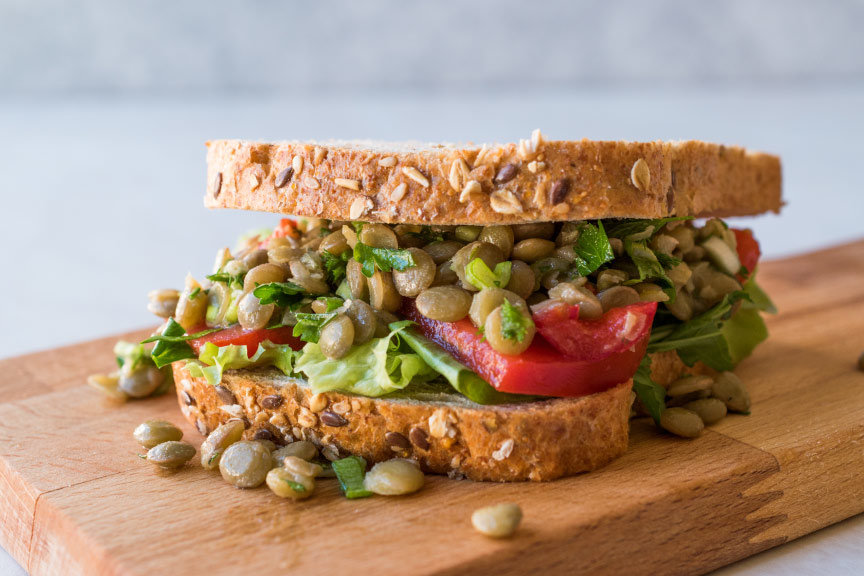
Vegan Toast
An easy option whenever you are in a hurry. Place 2 slices of plant – based cheese between 2 slices of bread and add some tomato, olives and avocado. You will get fiber, "good" polyunsaturated fatty acids and the antioxidant lycopene from the tomato.
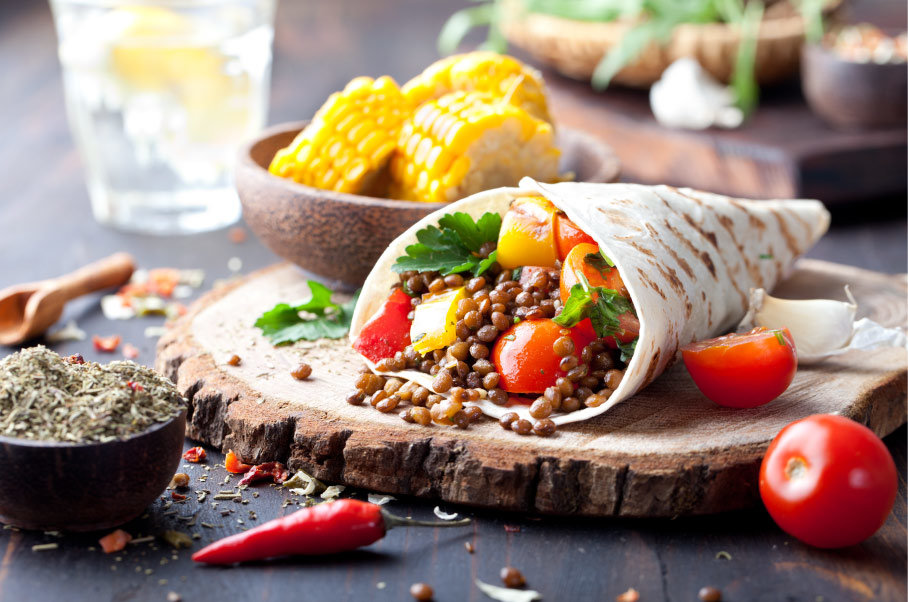
Tortilla
What could be easier than having ready-made tortillas in your fridge? Fill your preferred type of tortilla with plant – based cheese and vegetables of your liking and place it in the toaster. For a filling breakfast or lunch, add legumes such as red beans to your tortilla.
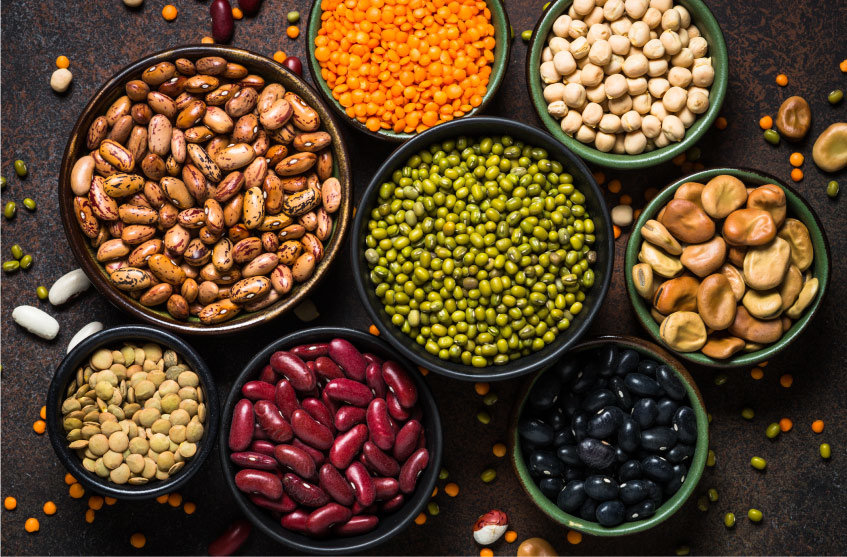
Legumes
Always keep cooked legumes such as black-eyed peas or red beans in the fridge. You can enjoy them as a side dish or as your main meal and they are an excellent protein source.
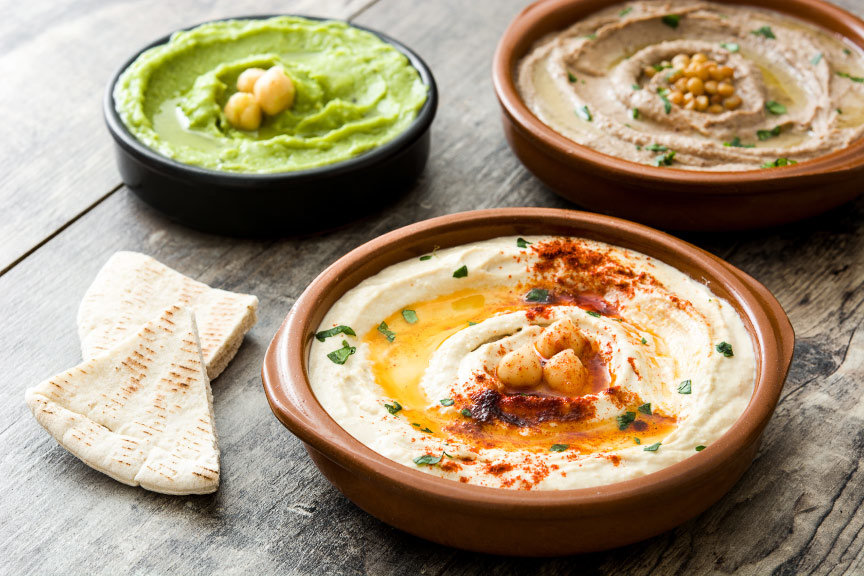
Hummus
Hummus is a treasure for every vegan. An oriental spread, whose main ingredients are mashed chickpeas, tahini, lemon juice and olive oil. It provides the best combination of protein and vitamin C (for better absorption of amino-acids), calcium and polyunsaturated fat acids. You can use this spread as a base in your tortilla or rice cracker (for fewer calories) and combine it with vegetables, such as grilled mushrooms, and salad.
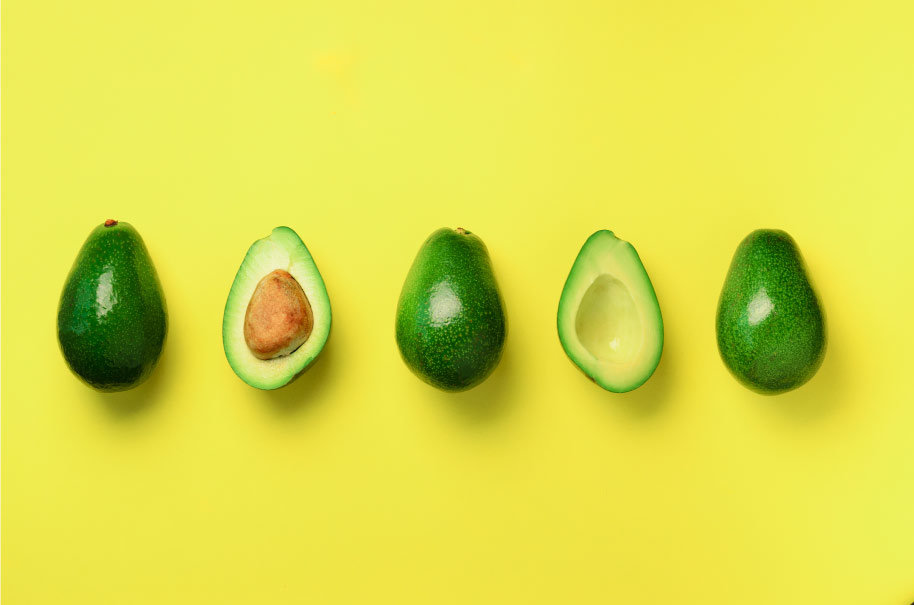
Avocado
Avocados are rich in monounsaturated fats, potassium and B vitamins. Cut whole slices of avocado and add them to your salad or toast. Avocado is also very tasty when paired with hummus tortillas, while its most famous version is the Mexican guacamole.

Tahini
Sesame seeds in their liquid form… The best source for calcium, vitamin E and B vitamins. Combine it with maple syrup or agave and spread the mixture onto a slice of bread. You may also purchase it in its combined versions, usually with dark chocolate or orange, which are especially flavorful.
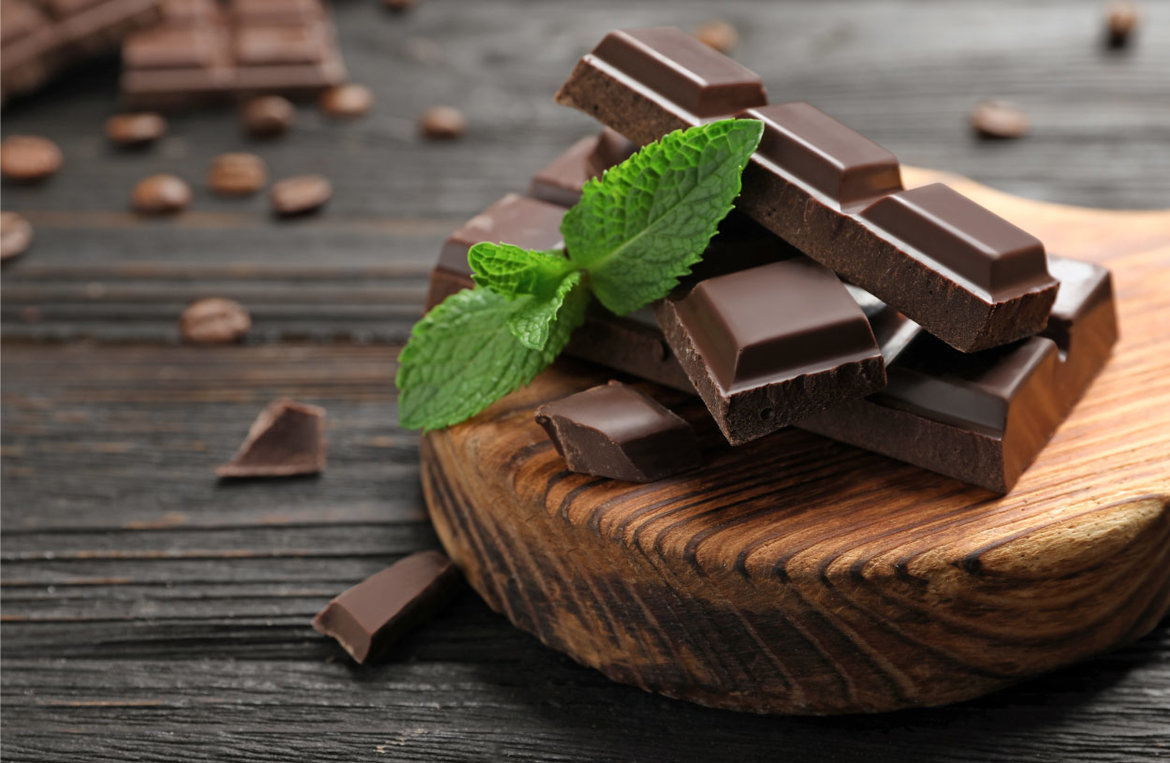
Dark chocolate
Vegan dark chocolate has a higher cocoa percentage and is completely free of milk. It is rich in antioxidants, iron and copper. Combine it with nuts, raisins and dried fruits.
